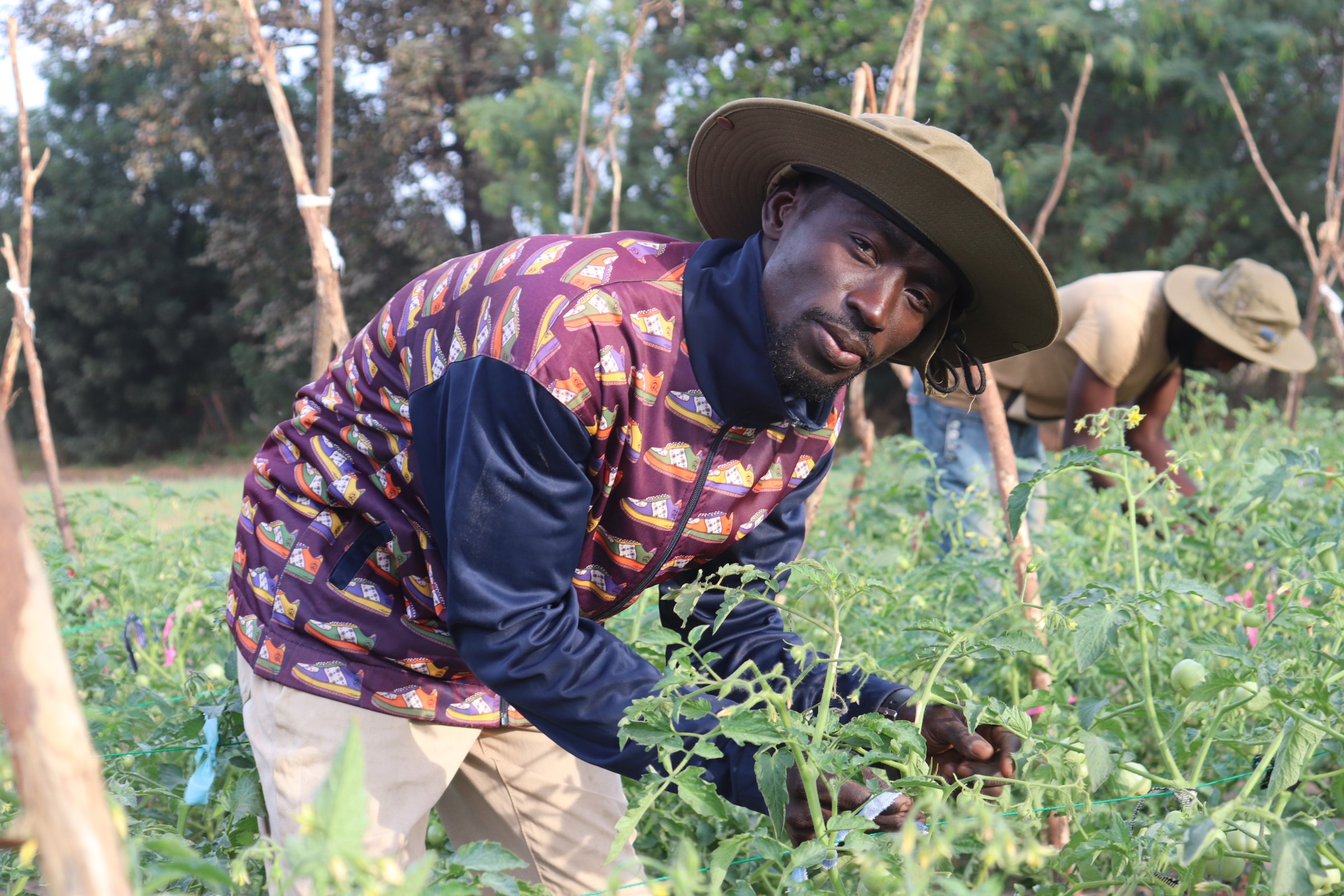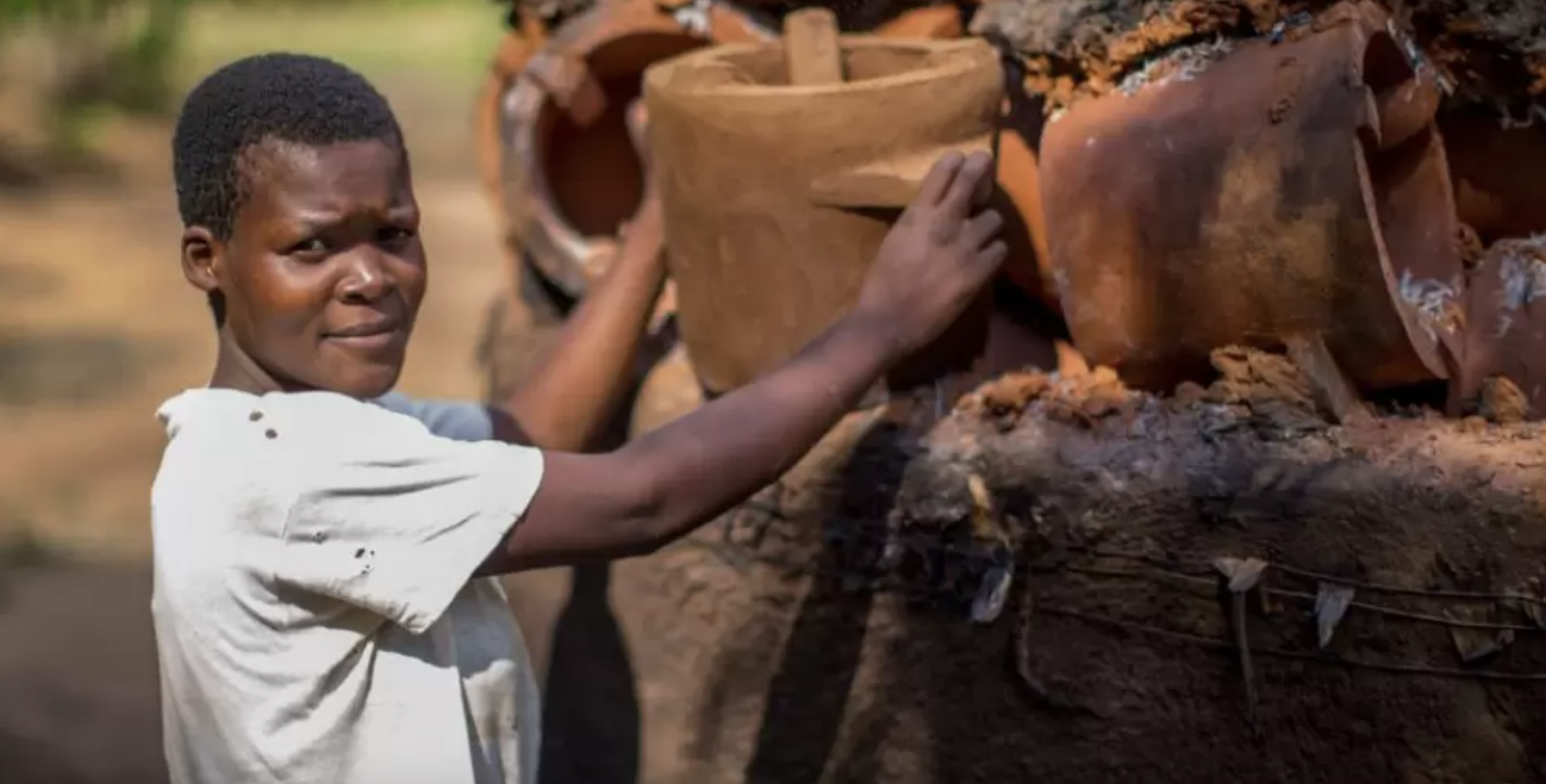Our innovative partner, Jokalante, is a social enterprise in Senegal. It uses radio and mobile alerts to share updates with smallholder farmers in poor, rural communities.
Jokalante’s smart, voice-based platform overcomes the challenges of illiteracy by broadcasting information in preferred local languages, including weather updates and information on certified seeds. This keeps the listeners informed and able to get the fairest deal when purchasing seeds and to make preparations in advance of weather changes.
The word “Jokalante” means dialogue in the Wolof language, and that is exactly what it facilitates.
Above: Ndeye Amy Kebe in the Jokalante office
We spoke with Ndeye Amy Kebe, the founder of Jokalante, about her entrepreneurial journey, where she finds her inspiration and the challenges she has overcome along the way.
UP: What’s the best thing about working at Jokalante?
NAK: Every day is an adventure, because we’re always finding out new things. Every single day, we’re learning how to improve our services, how we can communicate better with our clients and expand what we’re doing. There are always new, innovative things to think about – and it’s so exciting that people are always discovering our platform. There’s so much to learn!
What are your ambitions for Jokalante?
Jokalante is not just a platform and it’s not just about ICT. It’s also about sharing experiences, connecting with people, talking to people and learning from others. Our ambition is to continue improving how we share information) and to become a big enterprise that can connect communication and knowledge management.
What is it like being a female entrepreneur in Senegal? Are there any challenges you face as a woman?
Being a female entrepreneur in Senegal is not easy. You’re not just an entrepreneur – you’re often a mum and a wife, and it’s common to live with your extended family and family-in-law. Senegalese society is very social and you’re expected to attend so many social events. This can cause tension because as an entrepreneur, you have to work every day. Entrepreneurship is not just working eight hours per day – it’s all the time!
It can be hard not to lose yourself and hard to prioritise what’s really important for your enterprise and also for your children. For me, it’s a big challenge to get the right balance. Personally, with my children (I have three), it’s not so much of an issue because I live with them and I’m very present in their lives – but it can be difficult with other members of the family, especially when they complain they haven’t seen you for a long time. But you need to make choices in life and learn to prioritise what is really important. For me, that is the business and my children.
Above: Ndeye Amy Kebe with the rest of the Jokalante team
Across the world, the number of women working in technology tends to be lower the number of men working in technology. As a woman working in a traditionally masculine domain, do you encounter any challenges?
In Senegal, we promote entrepreneurialism in the tech sector, especially among women. Personally, I think the challenges you face as a woman are more to do with management. In my experience, men don’t always like being told what to do by women – you can feel that sometimes, and you tend to explain your decisions more and be highly perceptive of other people’s feelings. I feel like I have to manage the feelings of other people but it’s important to learn to be more assertive.
How would you encourage other young women to pursue a career in technology and set up their own businesses?
Technology is a key sector in Africa. It will improve so many areas of life, and I think it’s really important for young women to choose careers in technology. In terms of how to encourage young women to set up their own businesses, I would say running your own business is the most exciting thing ever. You get to make all of your own decisions, you get to make mistakes and learn from them – it’s a school for life. And if your business can improve the lives of other people, it’s such an incredible feeling. It gives you a real sense of meaning and purpose. For me, I don’t want to have a regular nine-to-five job ever again. It’s so exciting to create your own business and see it develop. Every day, things improve and you see the results.
Who inspires you?
There are two people who particularly inspire me. One is Serigne Touba, who was a Sufi religious leader in Senegal in the nineteenth century. There’s a quote from him that has helped me a lot: “You have to work every day as though you will never die and you have to pray every day like you will die tomorrow”. The other person who inspires me is Albert Einstein. One of my favourite quotes of his is: “There is no failure; there are only dropouts”.
Where do you find the motivation to keep going?
I find my motivation from the wonderful people I work with, and also from people who really believe in Jokalante. They help us keep going and discover more.
What are your personal and professional hopes for the future?
I hope that I will be a great businesswoman, communicator and educator who does many different things. I would also love to develop some kind of programme that enables people to be more independent from aid money or project money. It is my dream to see people and communities become autonomous, and to have the tools and resources to improve their own lives and find their own solutions to the challenges they face.












